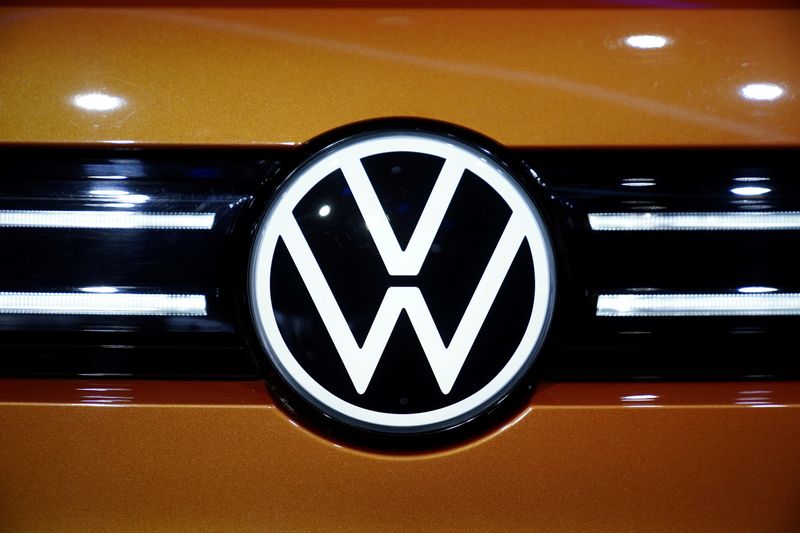By Christoph Steitz and Jan Schwartz
FRANKFURT (Reuters) - Volkswagen (DE:VOWG_p) boss Herbert Diess said Europe's top carmaker was in "crisis mode" over an ongoing lack of badly needed automotive chips, adding the impact of the shortage would intensify and hit profits in the second quarter.
Speaking after bumper results for the first three months of the year, during which operating profits increased more than five fold, Diess said the bottleneck would "substantially burden earnings" in the quarter to June.
The shortage has been caused by a mix of factors, including the car industry's sharper than expected rebound from the coronavirus crisis and a fire at key automotive chip maker Renesas Electronics Corp.
Snow storms in Texas earlier this year have made the situation worse, hurting local production of chipmakers such as Samsung Electronics (OTC:SSNLF), Infineon (OTC:IFNNY) and NXP Semiconductors (NASDAQ:NXPI).
"We will do everything to offset a significant amount of the lost cars in the second half of the year," Diess told journalists. "But the incidents in the U.S. and in Japan will hurt us definitely."
Diess said while the problem had cut production by around 100,000 cars in the first quarter, there was more to come.
"We're still tasking our supply chain people to recover the losses of quarter two, which we expect," he said.
Volkswagen shares were down 2.8%.
To secure supplies over the longer-term, the German group is talking directly to chipmakers including NXP Semiconductors and Infineon, as well as foundries such as Taiwan Semiconductor Manufacturing Co, Diess said.
"We are, for sure, in crisis mode," he said.
Despite the crunch, Volkswagen raised its operating margin target for this year after strong demand for Audis and Porsches in the first quarter.
It now expects an operating profit margin of 5.5-7%, up from a previous forecast of 5.0-6.5%.
During the first quarter, deliveries of Porsches and Audis both rose by about a third year on year, Volkswagen has said. Sales of electric vehicles more than doubled to 133,300 vehicles.
Stronger demand for high-margin cars echoed similar comments from General Motors (NYSE:GM), Daimler (OTC:DDAIF), Ford and Stellantis.
Volkswagen, the world's second largest carmaker by vehicle sales, cheered investors earlier this year when it provided more detail about its electric vehicle strategy, including higher sales targets and plans to build six battery factories in Europe.

Volkswagen's operating profit came in at 4.8 billion euros ($5.8 billion) in January-March, helped by cost cuts and higher sales, versus 900 million euros in the same period last year, which was hit by the COVID-19 pandemic.
($1 = 0.8330 euros)